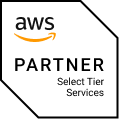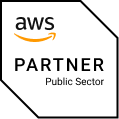CUSTOMER BACKGROUND
Corefy is a unified payment orchestration platform for online businesses and payment institutions. Integration with Corefy enables its customers to build into their websites and apps the feature-rich functionality of making and receiving online payments. The company has partnered with 200+ PSPs and offers support for any currency, payment method, and flow.
Corefy is an international company that has several global locations, including the HQ in London, the APAC office in the Philippines, and local offices in the Netherlands and Israel. The company’s R&D office is located in Kyiv.
WHY THEY CHOSE US
Around eight years ago, before the emergence of the Corefy platform, its co-founders were engaged in developing another payment solution, Interkassa. Back then, SHALB specialists helped them to adjust their existing infrastructure and design a new one on AWS, which was more suitable for their product needs. Working together had been a positive experience, so when this new project arose, they didn’t hesitate to contact us again.
THE TASK
Before our involvement, Corefy ran their processes on an on-prem, VM-based infrastructure. It was outdated, not scalable, and had many problems. Corefy had been thinking about cloud infrastructure, however, they lacked the expertise in the cloud native field to design a new one with their own resources. Dmytro Dzubenko, CTO at Corefy, says:
SHALB provided us with consulting on how to build our new infrastructure using new technologies to cover our needs. Initially, they took our vision and gave us excellent recommendations for databases, and we decided to go with Kubernetes.
So our task lay in providing consulting services to help Corefy migrate their infrastructure to a new platform, and ultimately guide them on how to rebuild it on Kubernetes.
PROJECT DELIVERY
Infrastructure as Code (IaC)
Our main efforts revolved around the dev environment, which was set up as a reference for Corefy’s own developing endeavors.
Following the IaC approach, our specialists described with Terraform the creation and provisioning of infrastructure resources – a managed Kubernetes cluster on AWS to run Corefy’s services. Subsequently, this code has been used by the Corefy team to launch staging and production environments.
GitOps approach
In order to enable deploying to the Kubernetes cluster from GitLab, we set up GitLab pipelines and employed Argo CD to automate the deployments. Kubernetes manifests were specified as Helm charts. Our team advised Corefy’s engineers on how to write the charts and deploy applications to Kubernetes.
Release changes are committed to the infrastructure repository, where they are then taken by Argo CD controller and applied to destination environments. The changes are automatically rolled up to dev and staging, except for the production rollouts that require manual approval.
Autoscaling
Autoscaling of Corefy’s applications is enabled by KEDA – a Kubernetes-based event driven autoscaler with Amazon SQS as an event source. The customer’s processing operations are defined as events. If the number of events is rising, this triggers upscaling and an increase in the number of worker nodes.
Service mesh
Сustomer’s services in the cluster communicate over a network secured by Linkerd, which is integrated with Argo Rollouts to enhance its traffic shaping abilities. The configuration made it possible to gradually shift traffic during a release, enabling shifting of customer queries to the new version in percent.
Special requirements
In order to meet SLA commitments, Corefy needed to divide traffic on the platform between its customers: multi-tenant that share a payment application, and dedicated or white label, which have a personal payment system under their brand. The latter have better SLA offering, and their data is being stored and processed separately.
The solution has been realized on an infrastructure layer by implementing separated load balancers for multi-tenant and dedicated customers.
PROJECT OUTCOME
Thanks to our collaboration, Corefy acquired a cutting-edge infrastructure that is scalable, cloud native, and based on open-source technologies. According to Dmytro Dzubenko, our involvement resulted in a significant reduction of bugs in their system.
Corefy has improved its release process and made it more reliable through the implementation of GitOps, together with Argo CD. Employing Argo Rollouts expanded the deployment functionality in terms of traffic flow and introduced new update strategies (blue-green and canary deployments). An advanced observability system, based on Prometheus and Grafana, provides for the visualization of infrastructure issues, effective debugging, and log aggregation.
Currently, Corefy’s team is implementing their new infrastructure using the skills and knowledge that SHALB provided them with. The customer praised our vast experience in software consulting, with Dmytro Dzubenko stating that: “SHALB is an expert in building software architecture; they did an excellent job.”
Any questions concerning infrastructure development, maintenance, or support? Get in touch because SHALB engineers love such tasks! Our team is communicative, organized, and works remotely as part of your working community. Book an online meeting or contact sales@shalb.com for more information.


